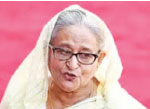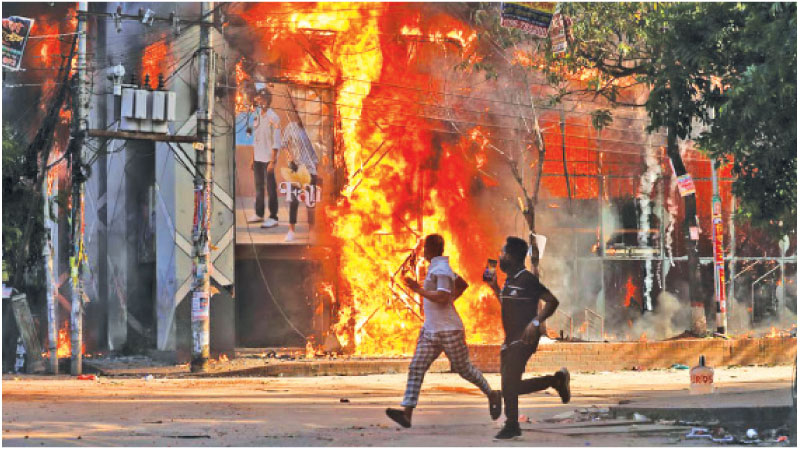Since its Independence, Bangladesh has faced multiple political crises, characterised by periods of military rule, political violence, and fierce rivalry between its two main political parties.
Despite these challenges, it maintained a degree of political stability and achieve significant economic progress over the last decade. However, the severe crisis Bangladesh is currently enduring serves as a grave reminder for other countries in the South Asian region, highlighting what they must avoid and the determination of the youth for justice and equality .
Overview
Bangladesh, a nation of 175 million people, is currently experiencing one of its most severe political crises since independence—a crisis that threatens to undo the progress made over the past decade.
On August 5, Prime Minister Hasina, after 15 years in power, abruptly resigned and fled to India. Under Hasina’s leadership, the Bangladeshi economy made substantial gains but also took a decidedly authoritarian turn. Her sudden resignation came in the wake of massive student protests against government job quotas perceived to favour the ruling Awami League. Hasina’s labeling of the protesters as “razakars” — a term historically used to describe collaborators with the Pakistani Army during Bangladesh’s 1971 liberation war — fuelled further anger.
The situation escalated when authorities used force to suppress the protests, resulting in over 300 deaths. This triggered another wave of demonstrations and a broader movement demanding Hasina’s resignation, with the tacit support of the military leadership.
After Hasina’s exit
Following Hasina’s departure, the Bangladesh military formed an interim government to oversee the upcoming elections. Parliament was dissolved, and Opposition leader and former Prime Minister Khaleda Zia of the Bangladesh Nationalist Party was released.

Deposed PM Hasina
Nobel Laureate Muhammad Yunus was appointed to lead the interim government. He can certainly draw lessons from the narrative of how Ranil Wickremesinghe resuscitated Sri Lanka, particularly his leadership during a period of severe economic and political crisis that brought the country to the brink of collapse. President Ranil Wickremesinghe’s leadership during Sri Lanka’s darkest hour was marked by decisive action and a commitment to restoring stability. His ability to navigate the complexities of the crisis, both economically and politically, was instrumental in saving Sri Lanka from a complete collapse. Bangladesh’s recurring political crises often arise from weak democratic institutions, including the judiciary, election commission, and law enforcement agencies. Strengthening the independence and effectiveness of these institutions is crucial for maintaining democratic governance and preventing political instability. Other nations can also learn from this situation, understanding the importance of reducing political polarization through dialogue, compromise, and inclusive governance.
Key lessons
To begin with, encouraging political parties to prioritise national interests over partisan agendas is crucial for preventing such crises. A robust and independent civil society, along with a free press, plays a vital role in averting political turmoil. Governments should ensure freedom of the press and actively support civil society organisations that advocate for democratic values, human rights, and good governance. Despite its political challenges, Bangladesh has managed to maintain a degree of economic stability, which has been instrumental in preventing these crises from spiraling totally out of control.
Economic progress has provided a sense of normalcy and hope, even in turbulent times. However, the recurrence of crises in Bangladesh underscores the importance of learning from past mistakes. Countries must work diligently to maintain economic stability and growth, even in the face of political uncertainty. A strong economy can act as a stabilising force, reducing the likelihood of widespread unrest and mitigating the impact of political crises. Preventing military intervention in politics is essential, as it can further destabilise a nation. The key lesson for all leaders, as illustrated by this crisis, is that harmony between rulers and the ruled —grounded in mutual accountability and a shared vision for the betterment of society — is the only viable way to govern effectively.
The writer, is the Chairman of the Board of Investment and Port City Commission.





